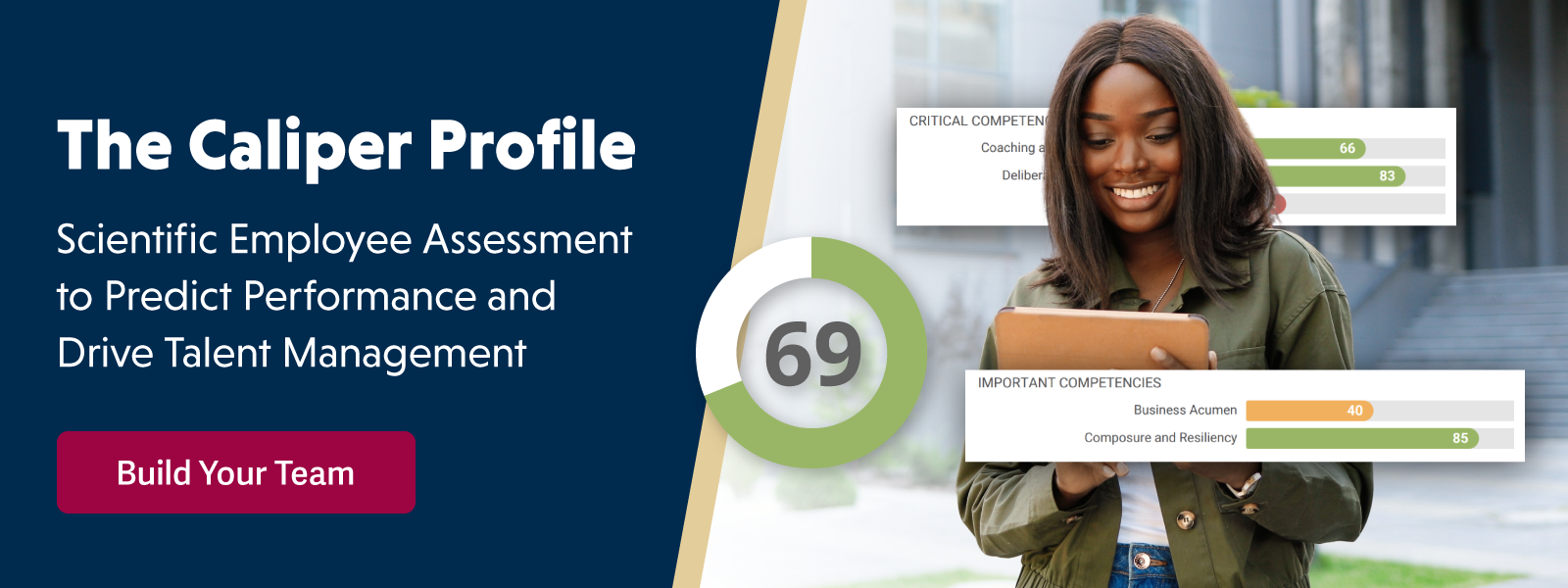It’s safe to say that this past year has been like no other. With the global pandemic, shutdowns, and mandates that were put into place, people struggled to adapt to such a dramatic change from the norms we were accustomed to. Part of this dramatic shift in our processes included navigating a new era of work as more working professionals transitioned to remote work than ever before.
Now we’re working our way through the other end of this intense disruption, and organizations are left wondering how a return to normalcy even looks. For many, much of the changes made over the past year and a half will continue in the future. In fact, 68% of businesses plan to continue having flexible work arrangements even once returning to the office is safe.
As we continue to navigate the world of remote work, one thing is clear: To have your team succeed, you need to find employees who are self-sufficient and self-aware. By recruiting self-aware candidates and developing your existing teams’ self-awareness skills, you’ll find yourself sourcing a more productive and engaged remote workforce.
#SelfAwareness in the workplace leads to higher levels of productivity and better #EmotionalIntelligence. See how you can train yourself and your team to become more self-aware on @CaliperCorp’s latest blog: Click To TweetWhat is Self-Awareness?
A branch of emotional intelligence, self-awareness is one’s ability to consciously manage and understand their character, feelings, motives, and desires. Essentially, it is a skill that enables people to tap into their true feelings and understand the drivers behind them.
Self-awareness and emotional intelligence focus on understanding your own emotions and the emotions of those around you so that you can act appropriately in social settings. This management of your thoughts and emotions is crucial because it influences your ability to analyze situations and react accordingly.
Why is Being Self-Aware Important At Work?
Even in remote situations, you are constantly communicating with coworkers, handling tasks for clients, and corresponding with a variety of people every day. To succeed and accomplish your goals, you need to understand your surroundings and react appropriately. Employees with higher levels of self-awareness are better at managing their emotions in high-stress situations, admitting when they are at fault, and leaving their personal lives at the door. This positively impacts company performance, leading to a more productive and honest workplace.
But, self-awareness is not just about managing emotions. It’s also about knowing your strengths and weaknesses. Self-aware employees can cater to their strengths while understanding what areas they can improve upon. This helps them grow as a person and allows them to become stronger in their role. Below we highlight some of the valuable benefits that come from working to increase your self-awareness.
The Benefits of Being Self-Aware
Just like any other skill, self-awareness is something you need to consciously work on to improve. It takes time and patience to become highly self-aware, but the benefits of investing in your personal development speak for themselves. Highly self-aware employees find themselves to be better equipped in a variety of areas:
- Better at dealing with stress — Self-aware employees can identify when they are stressed and determine what factors led to them feeling overwhelmed. This is highly beneficial, as it allows them to pinpoint what circumstances led to this so that they can avoid these stressors in the future. Additionally, highly self-aware employees can manage their stress levels so that they can reduce the strain on them and get back to performing at their peak. This helps to reduce the likelihood of burnout, which is a large challenge for many remote employees.
- Better with time management — Self-aware employees understand the timing, conditions, and environment in which they work most productively. They also are more aware of the situations around them, giving them a greater ability to manage deadlines and tasks. With an understanding of how they work best, self-aware employees know exactly the kind of space and resources they need to succeed. This is crucial for remote teams, where the manager is not able to oversee the progress of many tasks.
- Receiving Feedback — A crucial part of professional and personal development is receiving and acting upon feedback. Self-aware people tend to be critical of their work and constantly look for ways to improve their skills, meaning they often know what they need to improve upon before being told. And, when the time comes for receiving feedback, self-aware employees are generally more open and understanding of the development advice.
- Growing Confidence — Self-aware people understand their skill sets, strengths, and talents. The confidence that comes with knowing your value and worth has positive impacts on all aspects of life, including within your work. Heightened levels of self-confidence and self-awareness lead to higher levels of happiness and a higher chance of you accomplishing your goals. Plus, confidence is key for remote work, as you often need to make decisions without insight from your team.
Developing Self-Awareness
Developing your self-awareness is something that takes time and conscious effort. But, with practice, patience, and a solid strategy in place, you can work to develop your own self-awareness as well as those around you. Below are six strategies you can use to encourage your remote teams to become more self-aware:
- Take a personality test. Personality tests are a great resource for understanding your own motivators as well as those around you. This can be a helpful strategy for remote teams, as it will identify what kinds of strengths you have and the strengths of your coworkers. Armed with this knowledge, you can pinpoint the different dynamics of your team, giving you a better understanding of how to work alongside one another.
- Practice mindfulness. Mindfulness is all about understanding your current thoughts and emotions and clearing your mind of negative stressors. You can gain a deeper clarity of your surroundings and reduce distractive thoughts and objects by practicing mindfulness. Some ways to practice mindfulness are reflecting at the end of the day, meditating, or going for a walk to clear your head.
- Practice active listening. Active listening is when you listen to what someone is saying without judgment or advice. This skill enables you to positively engage with those you are talking to and understand their point of view.
- Try journaling. This is a great method to help you get out your feelings and process them. Many people use journaling to write down the triggers they find in their day-to-day life then reflect on steps they can take to not face negative impacts from these triggers in the future.
- Try naming your emotions. This exercise allows you to identify what you are feeling and why you feel that way. This may also allow you to see the emotions in other people, giving you a greater ability to manage your emotions and reactions in social situations.
- Lastly, encourage feedback. Sometimes having a different perspective on a situation can allow us to see things more clearly. By asking your friends, colleagues, or managers for feedback, you can gain a better understanding of your strengths and weaknesses, as well as what you can do to improve your performance.
As we prepare for the future and continue to navigate the new world of work, employees and managers would benefit from enhancing their self-awareness. Not only will you see personal benefits from managing your thoughts and emotions better, but you’ll also find yourself working in a healthier, more productive workforce.
At Caliper, we take individual development and emotional intelligence seriously. With a team of experts working on developmental strategies backed by science, our tools and resources will help you to see verifiable growth in a short amount of time. Want to learn more? Reach out to our team of experts today and see how we can help you grow your own skillset.


